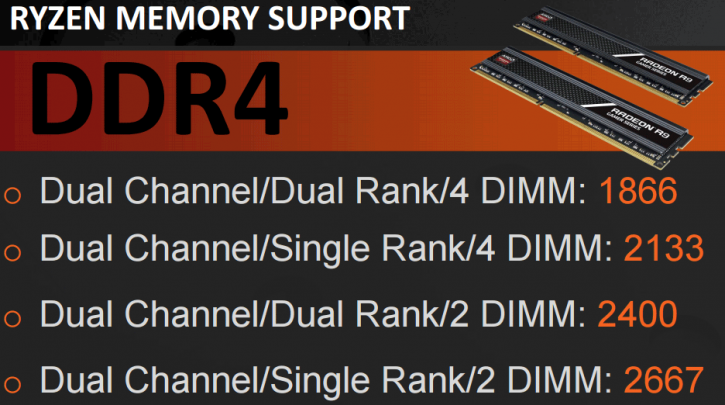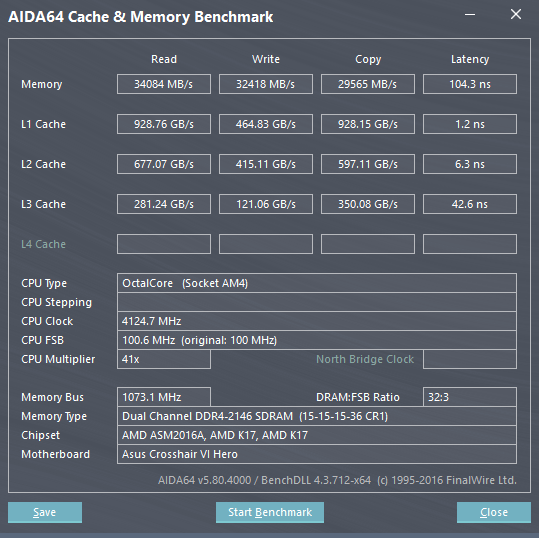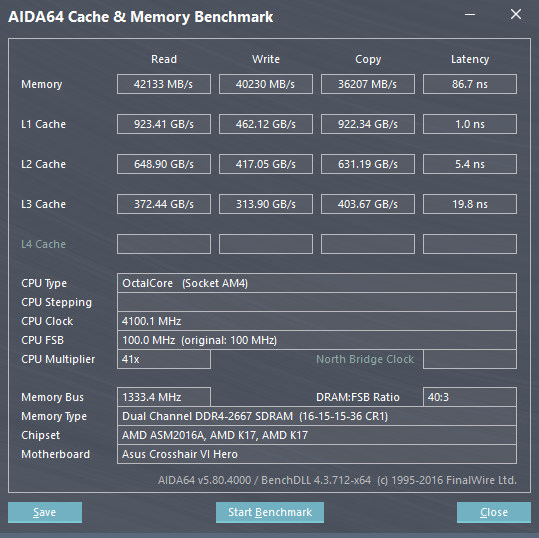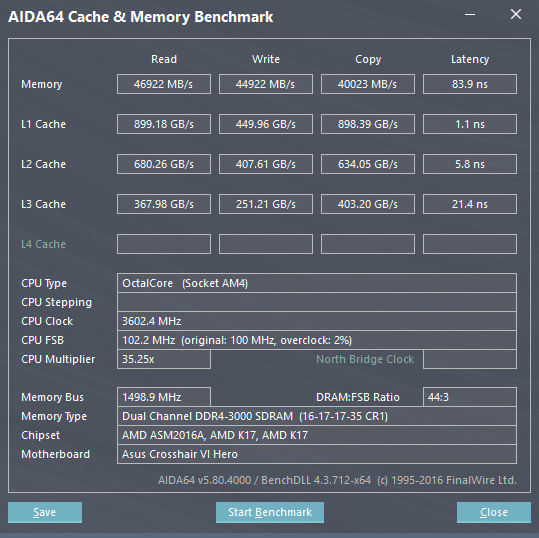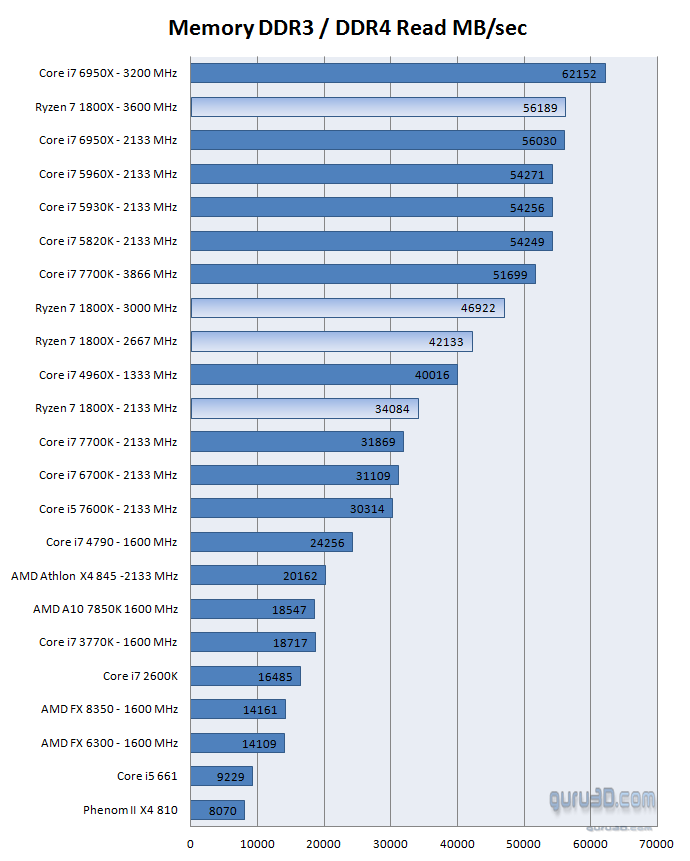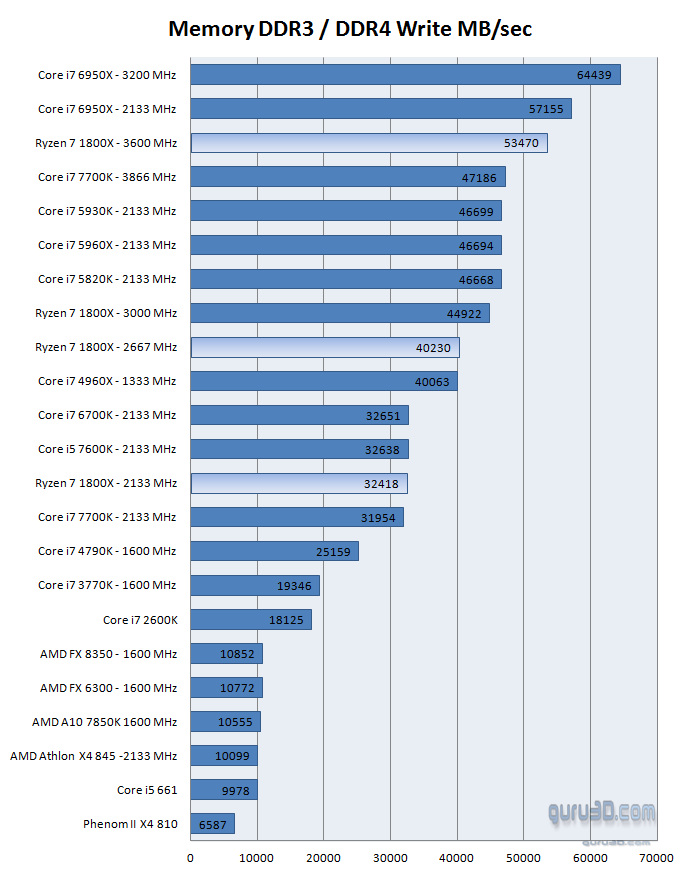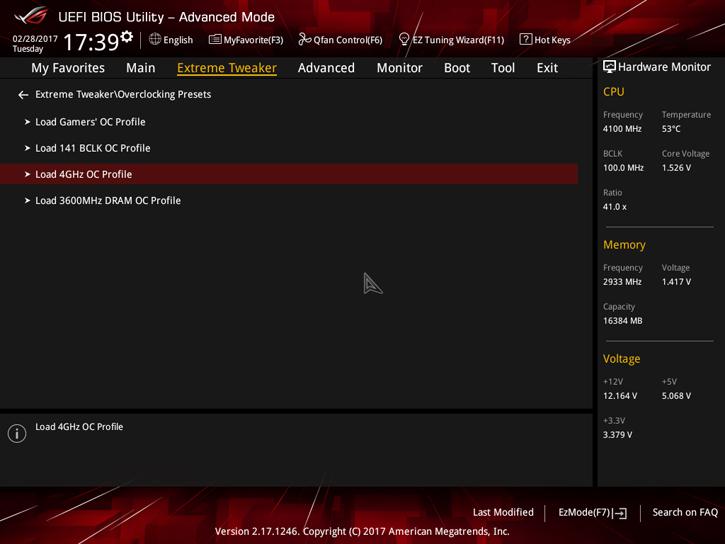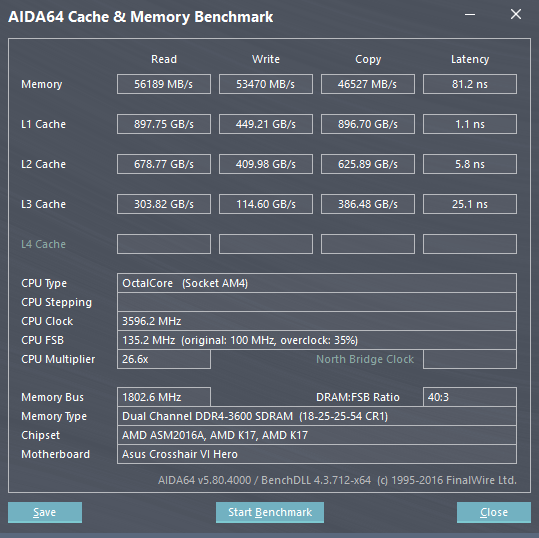Performance - System Memory Perf: DDR4 Memory Read / Write
Performance System Memory: Memory Read Test
For memory we will be using a Corsair Vengeance kit rated at 3000 MHz (Vengeance LPX LOCATED UNDER sku CODE CMK16GX4M2B3000C15). It is obviously a DDR4 DIMM kit, AMD has a couple of certified partners for memory. There are a couple of things we need to discuss. First off, AMD Ryzen offers dual-channel memory, while we had hoped for quad-channel. Gaming wise at 3000 MHz you will have enough memory bandwidth, for video transcoding processors quad-channel would have been a little nicer. At launch the Ryzen B350/X370 motherboards support high-frequency memory up-to roughly 3200 MHz with exceptions here and there. This will differ per motherboard manufacturer, but again you can expect support up-to 3200 MHz (dual-channel) and some even a notch higher. We highly recommend you to check what memory is supported with specific motherboards. Check the qualified vendor list and the supported modules at the manufacturer webpage!
Currently the higher frequencies are only supported with two DIMMs. If you use four DIMMs then at this moment you are looking at a maximum of 2400 MHz. BIOS updates will follow and we expect four DIMM higher MHz support in the weeks to follow. However if you want to go for high-frequency DDR4 memory, you are best invested with two 8 or 16 GB DIMMs. We recommend 16 GB these days for a nice amount of memory in any high-end gaming OC. Let's have a look at Ryzen series 7 memory performance in a couple of configurations:
Above, the memory at default 2,133 MHz (CL15), now really 32~35K is not exactly boring, but you can go faster my man.
2667 MHz is probably a sweet spot price performance wise, also recommended by AMD with a two DIMMs setup.
And for a little more bandwidth, 3,000 MHz on DDR4 (XMP) - roughly 45K Read and writes. We feel this will be the norm and recommend you to pick at least a 3000 MHz kit as Ryzen does like extra memory bandwidth.
Obviously after 3,000 MHz these memory kits get increasingly expensive. Whether you decide (or not) if that extra dough is well invested is your call to make. For a nice gaming PC we say a nice 3000 MHZ kit with normal CL16 latency is sufficient. If you however do a lot of transcoding etc. you might like the extra bandwidth and go with a 3.2 GHz kit at CL15, everything is relative.
One sidenote, the bandwith is good, that latency seems rather higher and problemsome.
Much like Intel, with Ryzen DDR4 2,133 and 2,400 MHz is the new norm. Lower 1,333/1,600 and 1,866 MHz are supported as well (but I cannot recommend that if you could even find such DIMMs). Let's chart the results up:
Keep in mind that the higher Core i7 59x0 and 69x0 series are quad-channel aside from the Core i7 7700. Overall Ryzen dual-channel performance is spot on and as expected. However, as we noticed, the processor would have really liked quad-channel memory. I inserted four entries so you can see and check what the memory controllers are capable of.
A little Bonus run
So, have a peek at the above result. The ASUS HERO motherboard has a few exquisite preconfigured BIOS settings for you to be able to run. First off, this is ASUS HERO specific only, I have not been able to pull this off on a Gigabyte motherboard that just arrived. See that 3600 MHz DRAM OC profile? Give it a try if you have fast enough memory for a bit of fun:
As you can see, the BLCK changes to 135 MHz, your core multiplier is now 26.6 and with a 40:3 DRAM ratio we are now running a G.Skill TridentZ kit at 3600 MHz :-) This brings read perf to 56K and 53K on writes. Results (and stability) may vary per processor and motherboard of course. So yes, as you can see, motherboard partners are trying to push memory and the memory controllers in Ryzen 7 as fast as they can. This tweak unfortunately (on our end) was not 100% stable but surely a nice indication of things to come. But at 3600 MHz, we're still hitting a rather high 81ns latency, weird.

